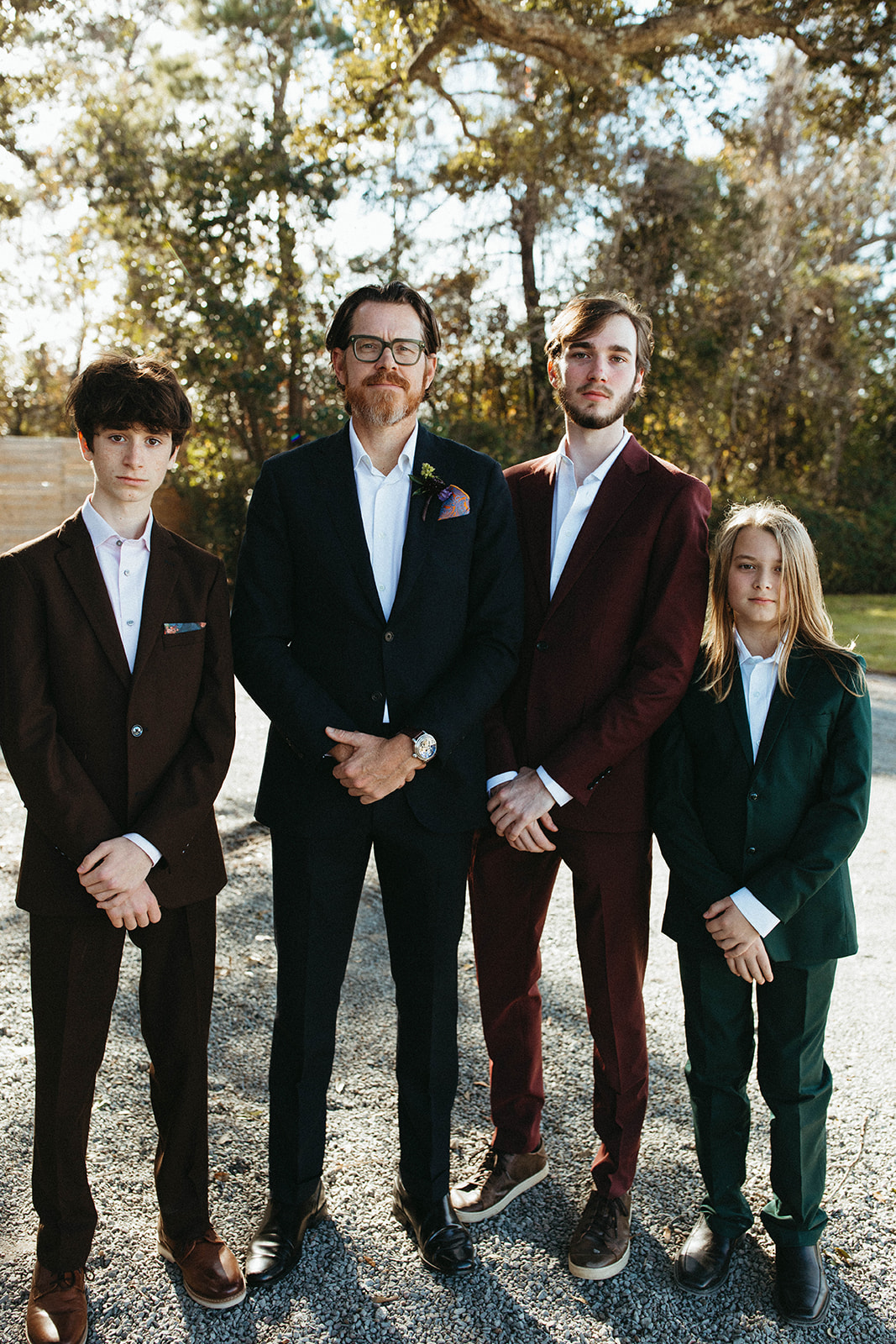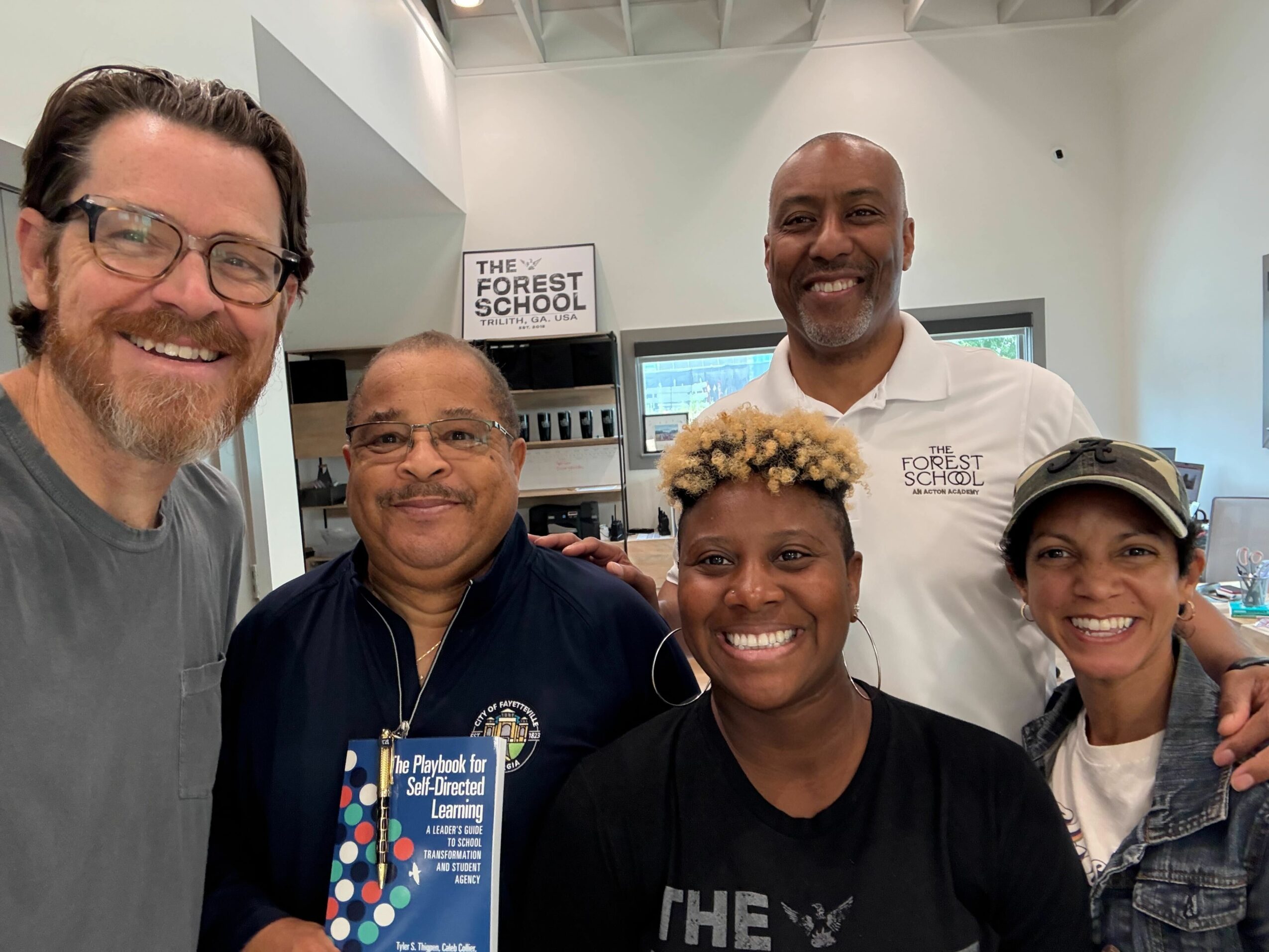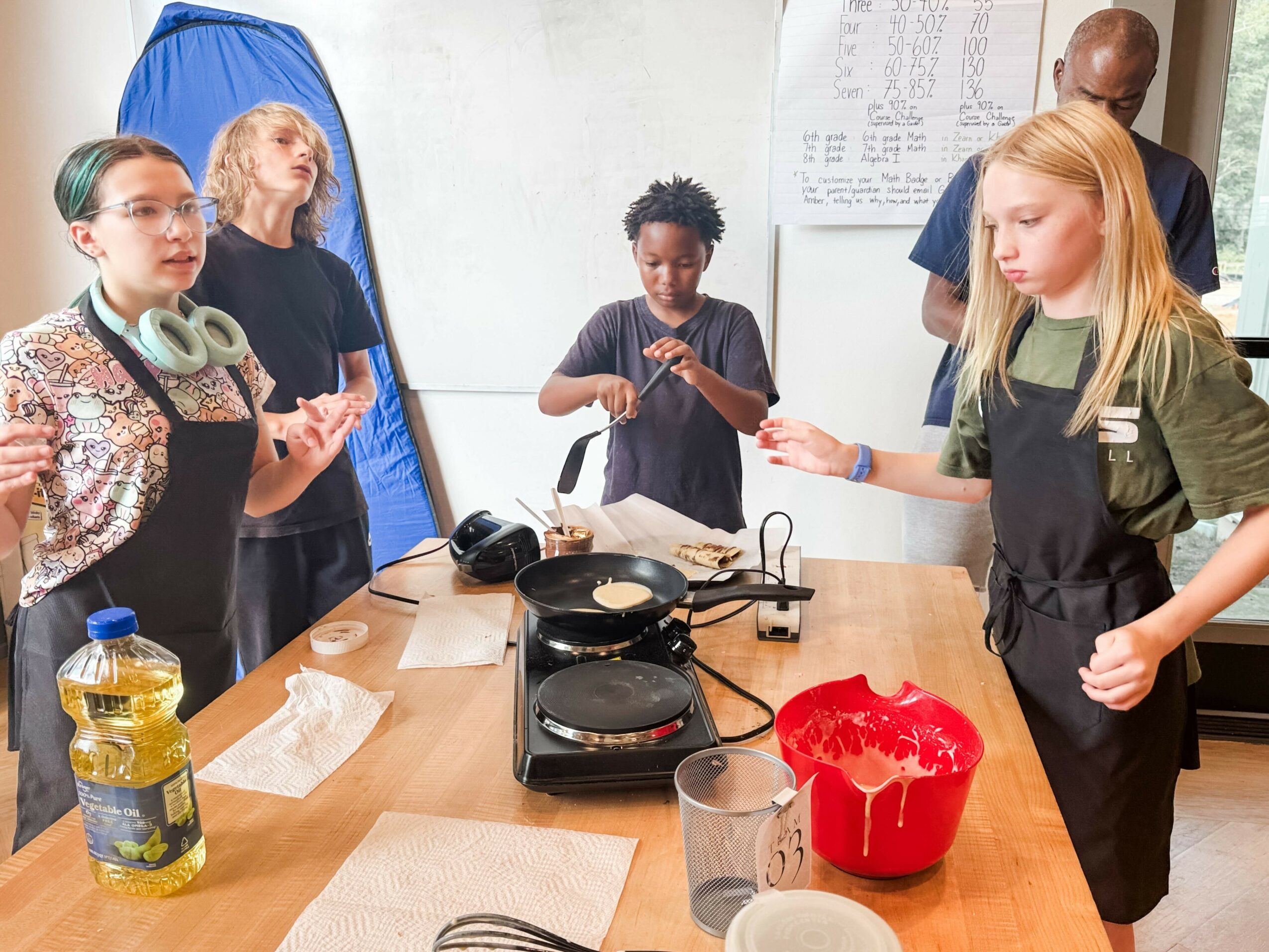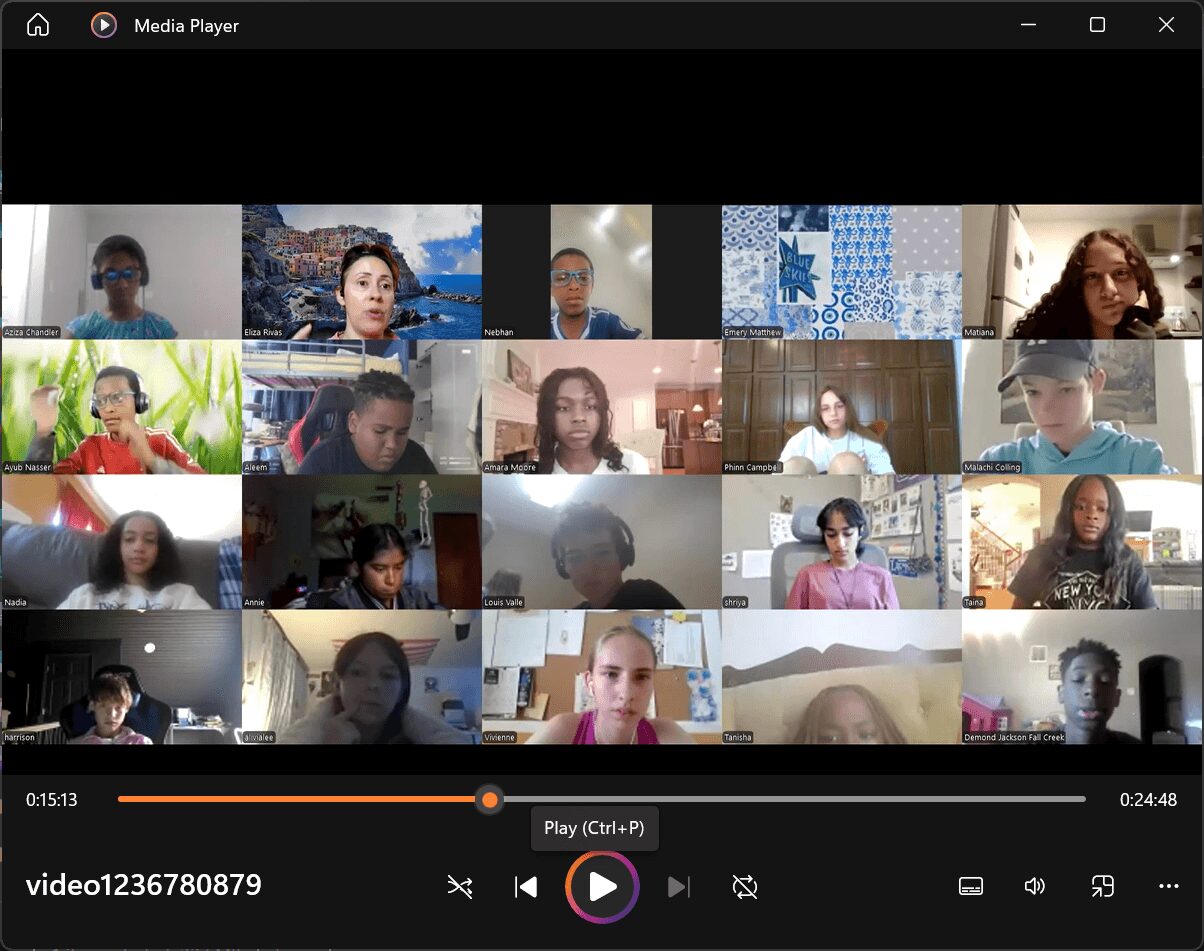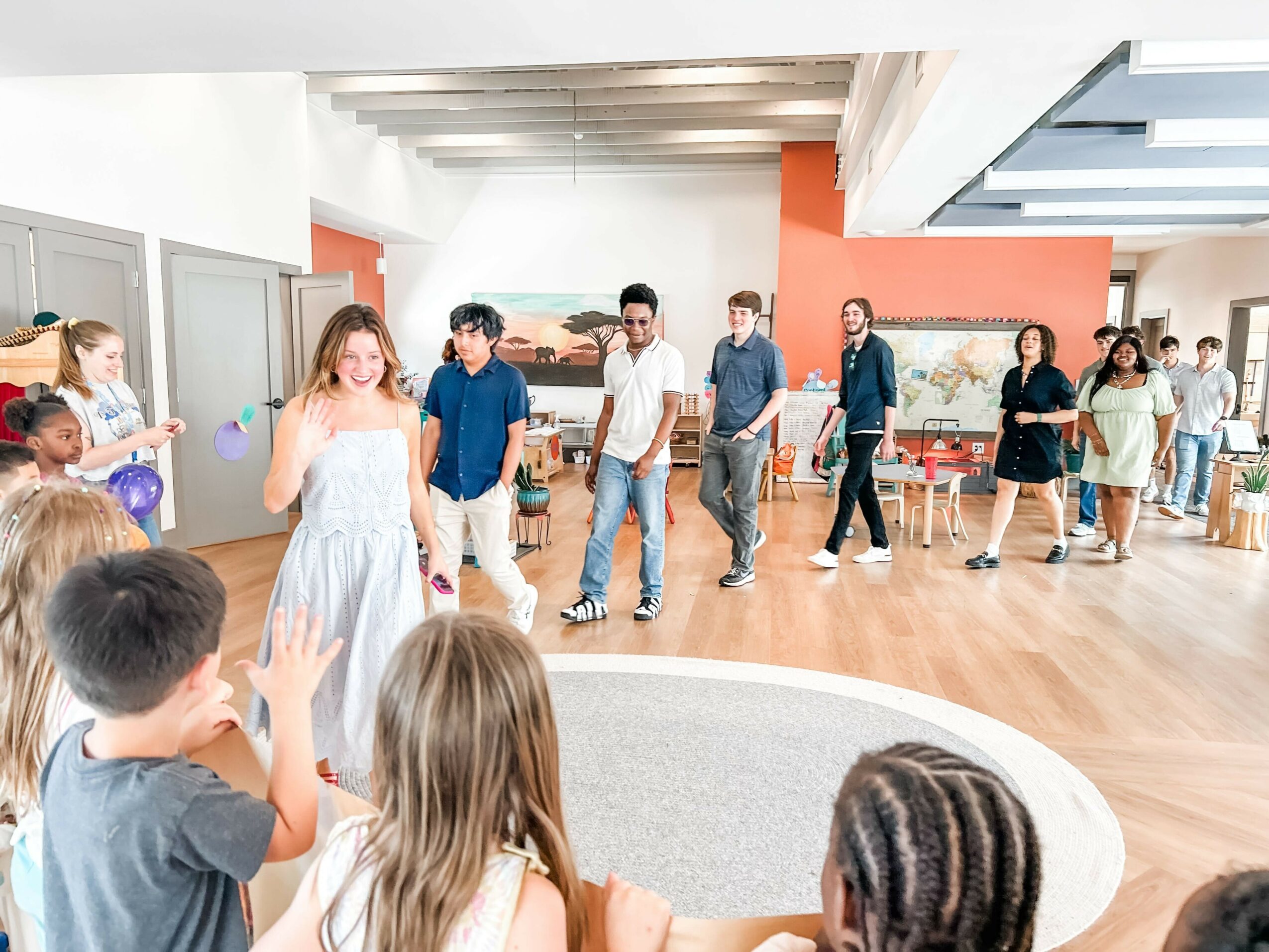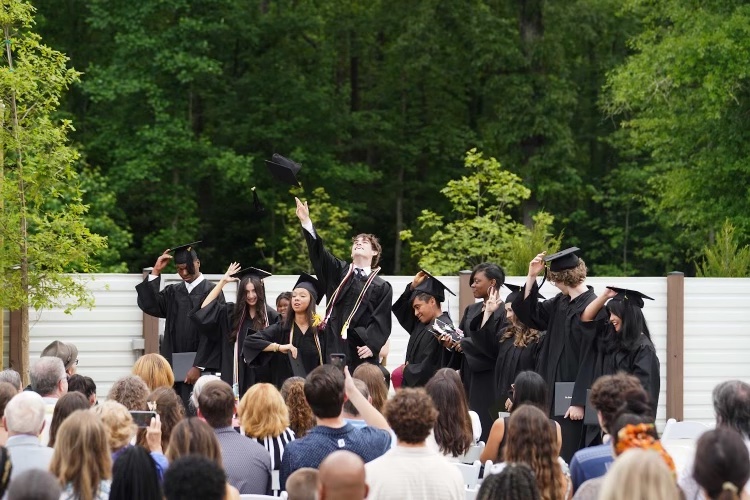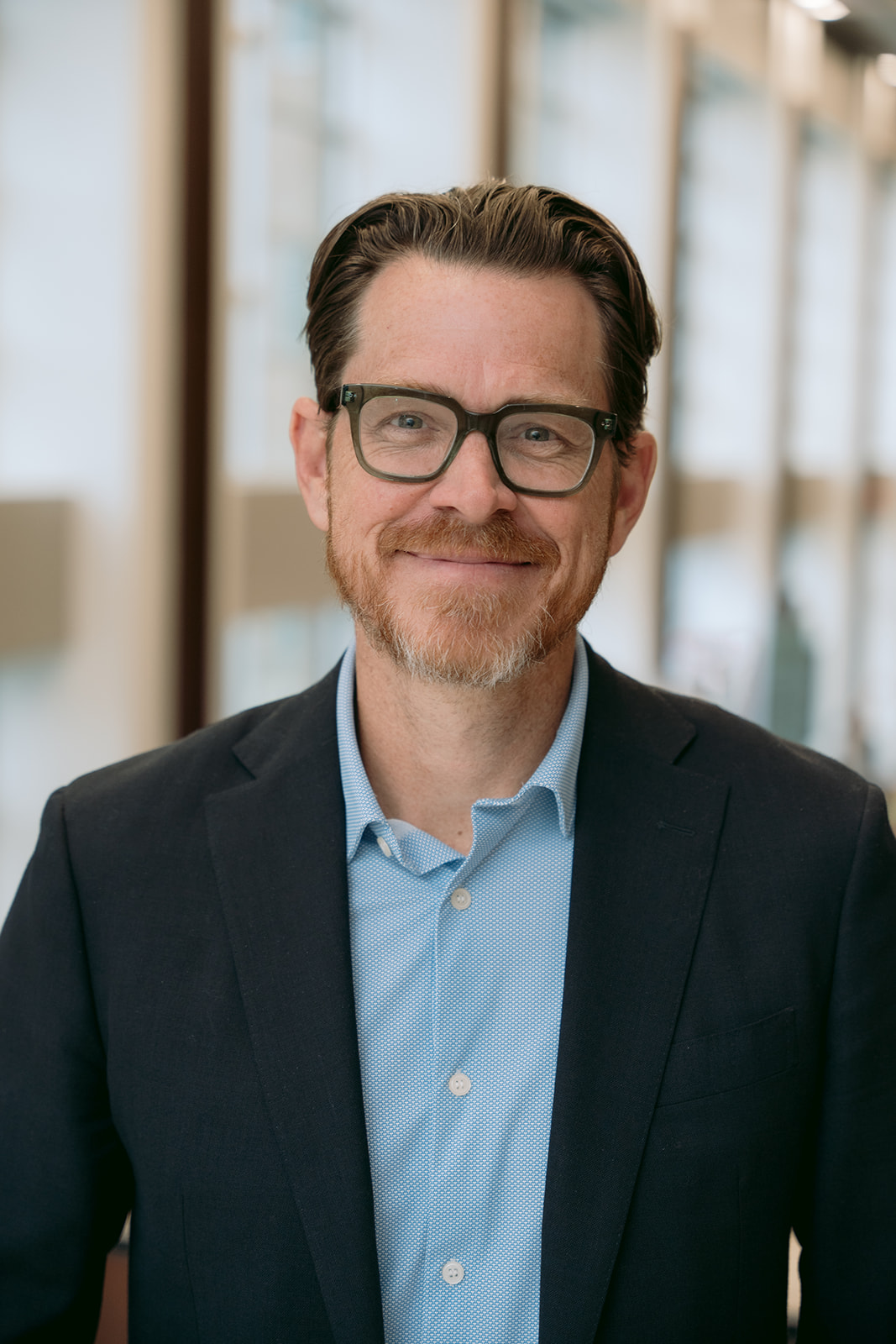

Today we’d like to introduce you to Tyler Thigpen.
Hi Tyler, thanks for sharing your story with us. To start, maybe you can tell our readers some of your backstory.
I didn’t start out thinking I’d be an educator. My first calling was ministry, and in my early twenties I found myself leading teenagers on service trips to places like Lima, Peru. On one of those trips, I met a 12-year-old boy named Juan Carlos who asked me not for money or a ticket out, but for a job so he could feed his siblings. That moment wrecked me. It was the first time I really saw the kind of courage and responsibility young people can carry—and it forced me to ask whether I was living with that same kind of strength. It also planted in me a lifelong question: how do we actually help communities for the long term, not just in one-off ways?
I eventually shifted from church ministry into education because I realized that schools reach more young people every day than almost any other institution. As a teacher and later as a principal, I saw how much potential there was when students were truly engaged—but I also saw how often school left them bored, detached, and disengaged. The turning point came when I witnessed schools breaking free of rigid schedules and inviting students to solve real problems, design projects, and pursue learning that mattered to them. Seeing young people light up in those environments convinced me that education can be radically reimagined.
Since then, my path has been about building and scaling those kinds of models. I co-founded and led schools, helped launch The Forest School and The Forest School Online, and created the Institute for Self Directed Learning. Alongside that, I serve as Academic Director at the University of Pennsylvania Graduate School of Education, helping to prepare and support the next generation of education leaders. Across all of it, I carry forward the lessons of Juan Carlos and of students like Mariana—the reminder that young people already have extraordinary strength and potential. Our job as educators is to design environments that honor that, equip them, and then get out of the way so they can choose their own way forward.
Would you say it’s been a smooth road, and if not what are some of the biggest challenges you’ve faced along the way?
It hasn’t been a smooth road at all. Leadership is both deeply rewarding and, at times, brutally hard. Over the years, I’ve led schools, nonprofits, an institute, even startups—and the throughline has been that the work itself is never just about strategy or innovation, it’s about people. And people are beautiful, complex, and sometimes really difficult.
I’ve had to navigate moments of deceit, sabotage, and behind-the-scenes maneuvering. I’ve been blamed for things outside my control, had my motives questioned, and absorbed complaints that ranged from trivial to transformative. There have been times of rejection, skepticism, and outright rebellion against decisions I believed were in service of young people. Those seasons left me feeling lonely, anxious, and at points even disillusioned.
But they’ve also taught me resilience. I’ve learned to focus on what I can actually control, to let go of outcomes I can’t, and to lean on a close circle of trusted friends, faith, and practices that keep me grounded. Criticism, even when it stings, has become a source of insight. And through it all, I’ve tried to stay true to my integrity and mission.
So yes—it’s been hard. But the weight of leadership has been a teacher. It has forced me to grow in humility, patience, and endurance. I now see that some of the biggest “no’s” or setbacks in my career have actually opened doors to far better things. Carrying the burden hasn’t crushed me; it has shaped me into someone better equipped to lead with compassion and clarity.
Thanks – so what else should our readers know about The Forest School: An Acton Academy & Institute for Self Directed Learning?
At the heart of our work is a simple but bold belief: young people are far more capable than most schools give them credit for. At The Forest School: An Acton Academy, we’ve designed an environment where learners take ownership of their education, pursue meaningful work, and build the habits of self-leadership that will carry them through life. We call our students “heroes” because we want them to see themselves as the protagonists of their own journey. Our studios don’t run on lectures and worksheets—they run on Socratic discussions, real-world projects, apprenticeships, and exhibitions of learning where students publicly share what they’ve built or discovered. Learners even start their own sports teams and shape school culture. It’s a place where self-directed learning isn’t just a phrase—it’s the daily lived experience.
Alongside the school, the Institute for Self Directed Learning exists to research, codify, and share what makes this approach work. We train educators, consult with systems, and run accelerators for microschool founders and leaders. Our goal is to influence the broader field, not just our own campus. We want policymakers, parents, and teachers everywhere to see that young people can drive their own learning—and that it leads to deeper engagement, stronger outcomes, and greater flourishing.
What sets us apart is that we’re not trying to scale one cookie-cutter model. We’re building an ecosystem—both in-person and online—of learning environments that are diverse by design, deeply personalized, and rigorous in a way that actually matters for life. Brand-wise, I’m most proud that when people visit The Forest School or work with the Institute, what they see and feel is joy, relevance, and ownership. Our learners are not waiting for the adults in the room to catch up—they are leading, creating, and showing us what’s possible.
If there’s one thing I’d want your readers to know, it’s this: self-directed learning isn’t a luxury for a few. It’s a birthright. Every young person deserves the chance to chart their own path, contribute meaningfully to their community, and grow into someone who takes full responsibility for their life. That’s the work we wake up every day to do.
We love surprises, fun facts and unexpected stories. Is there something you can share that might surprise us?
Something that might surprise people is that I’m still very much an athlete at heart. Coaching volleyball at The Forest School and playing competitive tennis on the weekends keeps me grounded in the lessons of teamwork, resilience, and discipline—the same lessons I try to pass on to learners. For me, athletics and academics are both laboratories for character and growth.
Professionally, people are often surprised by the scope of the work we’re taking on beyond our own campus. We’re launching a Microschool Institute at the University of Pennsylvania, helping to establish the nation’s first collaborative of public self-directed microschools in Indiana, and soon leading up to ten districts in Georgia through a process to design transformative learning models that better meet parents’ and learners’ needs and dreams. It’s an exciting moment where the local and national are intersecting—and where the movement for self-directed learning is gaining real momentum.
Pricing:
- Tuition is $13,250/yr for learners in our Spark, Elementary, Middle, and High School Studios at The Forest School. $7,700/yr for 3-year old and 4-year old Spark learners who attend half day.
Contact Info:
- Website: https://theforest.school/
- Instagram: https://www.instagram.com/weareforestschool/
- Facebook: https://www.facebook.com/forestschoolPF/
- LinkedIn: https://www.linkedin.com/in/thigpentyler/
- Twitter: https://x.com/TylerThigpen
- Youtube: https://www.youtube.com/channel/UCzc2KigMU5lbJN5Gw9iJMRQ/videos
